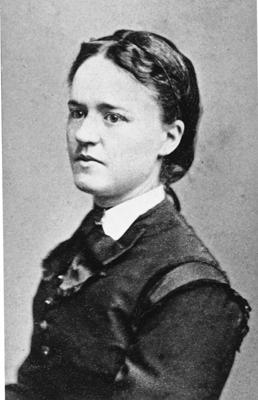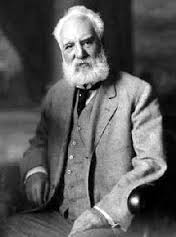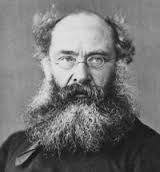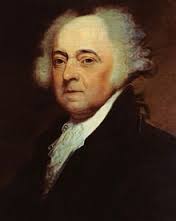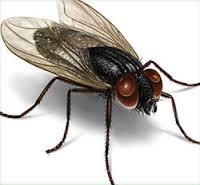I was recently given a host of questions by a reader’s website called seriousreading.com I guess so they could publish a little content along with a review of my new book “Carrie Welton.” The review didn’t amount to much (although it was 5 stars out of 5!!), but I thought you might enjoy the Q&A.
A common misconception regarding authors is that they are socially inept, how true is that?
Not at all true in my case! In fact, I can give the impression of being quite outgoing and socially smooth and suave – especially when answering a series of written questions while safely at home, seated alone at my desk.
If you could have been the original author of any book, what would it have been and why?
Probably “Goodnight Moon.” The simple magic in those pages has always bewitched me and made me drowsy.
When did it dawn upon you that you wanted to be a writer?
On the first day of 1st Grade, the teacher opened up a big book in the front of the class, and all it said on the first page was “Look.” And I remember thinking that I could do better than that.
Do you set a plot or prefer going wherever an idea takes you?
With “Carrie Welton,” the ending was in large part predetermined by actual events, but how she ended up on that stormy mountainside was, from the beginning, always in doubt. When I began, I had no idea she would do the crazy things she did or travel to the places she went.
What, according to you, is the hardest thing about writing?
Sitting down, shutting out the world and pounding it out.
What would you say is the easiest aspect of writing?
Re-reading a paragraph that turned out really well.
Do you read much and if so who are your favorite authors?
There are so many in my personal pantheon, but those among the living include Ian McEwan, Marilynne Robinson, Haruki Murakami, Edna O’Brien, Anne Tyler, Amy Bloom, and recently I loved books by Ben Fountain and Chad Harbach. In the realm of nonfiction, I am looking forward with the greatest possible anticipation to Robert Caro’s final volume on Lyndon B. Johnson. “Towering” doesn’t begin to describe it.
How would you feel if no one showed up at your book signing?
That happened to me once, at a library in Connecticut. I had driven an hour to get there and I was angry at the person in charge. “You asked me to come,” I said to her, “and that carries with it a certain responsibility to gather an audience. It doesn’t have to be a large audience, but some people do have to be here. There can’t be no one.” She seemed to have no idea of what I was talking about.
Do you read and reply to the reviews and comments of your readers?
Yes. I don’t see how anyone could not. Most writers are hungry for feedback. They work in seclusion, or something approaching it, they finish with a great sense of elation and sometimes emptiness, they go through the publication process, and then the book gets tossed out into the world like a stone skipping across water. Will anyone notice? Will anyone care? How many skips will it get before it sinks? Such are some of the writer’s typical insecurities. Any feedback, good or even bad, helps fend them off. So go ahead and write that online review or comment.
Does a bad review affect your writing?
No, just my mood.
Any advice you would like to give to aspiring writers?
No one cares as much about what you write as you do.
Do you recall the first ever book/novel you read?
The first one that stuck with me was “The Lost City.” It was a Rick Brant Science-Adventure Story in the manner of the Hardy Boys and Tom Swift, aimed at young boys. Very 1947, although I didn’t get to it until around 1960.
When you were young, did you ever see writing as a career or full-time profession?
I did, but as a newspaper reporter, which is how I began my career. I then transitioned into writing for magazines, then editing magazines, then writing nonfiction books, a musical and finally a novel.
Do you like traveling or do you prefer staying indoors?
I once wrote a book called “The Reluctant Naturalist” that basically enumerated all the bad things that can happen to you once you get out of bed. However, I will say that staying in bed all day in a foreign country can make for a nice change of pace.
Did any of your books get rejected by publishers?
That happened to one of my books, “How to Get a Monkey Into Harvard,” which was rejected by about 30 publishers before Grove took it. And then even after it was accepted it was rejected. My editor left and no one took the book up. It languished. Sad.
Have any of your books been adapted into a feature film?
No, but one of them was translated into Flemish.
How did it feel when your first book got published?
There used to be an event in Manhattan called Book Country. They’d close down Fifth Avenue on a Sunday afternoon and line the sidewalks with book stalls, one for each participating publisher. Atheneum was the publisher of my first book, “The Neurotic’s Handbook,” and they decided to feature my book on that day in 1982. Not only did I get to man my booth and trade witticisms with the passing crowd, but one of the windows of the adjacent Scribner’s Bookstore was filled with my book. I’ve had few better days.
Has it ever happened to you that someone published your story in their own name?
It happened to me once at my college newspaper. I’d written a humor piece only to have it see print under someone else’s byline. That was bad enough, but what was worse was that I came back five years later for a campus visit to see the paper had reprinted my story as a kind of classic – and it still carried the wrong byline!
Do contemporary writers have the kind of animosity that competitors in showbiz seem to have?
It’s probably a little odd, but in my life I have virtually no contact with other writers. I don’t know if this is good or bad. I suppose it keeps me from feeling any great animosity toward anyone else. But it keeps me from feeling collegial love, too. I will confess to strong feelings of competitiveness, even with those I don’t know personally, but that’s probably a healthy thing and good for the writing.
Do you need to be in a specific place or room to write, or you can just sit in the middle of a café full of people and write?
While writing “Carrie Welton,” I found my sweet spot at a nearby library (in Southbury, Connecticut) that was large enough for me to hide away happily and undisturbed in various nooks. The hushed ambient noise of the patrons and HVAC system was perfect as I toiled away with my ballpoint pen and yellow legal pad. I mentioned the library in the book’s acknowledgements.
What’s your favorite movie which was based on a book?
So many! Strangers on a Train, All the President’s Men, The Godfather, Tarzan and His Mate, Carrie, Schindler’s List, Donnie Brasco, From Here to Eternity, Pride and Prejudice, Great Expectations, The Magnificent Ambersons, Goldfinger, Goodfellas . . .
Which literary character do you most resonate with on a personal level?
As a young man (and maybe still), it was Nick Carraway, the narrator of “The Great Gatsby.” He was bright and earnest, keenly observant, a nice, peaceable guy but not a pushover, diplomatic when he needed to be, but still somewhat callow and unformed. And of course all those beautiful sentences were said in his voice!
